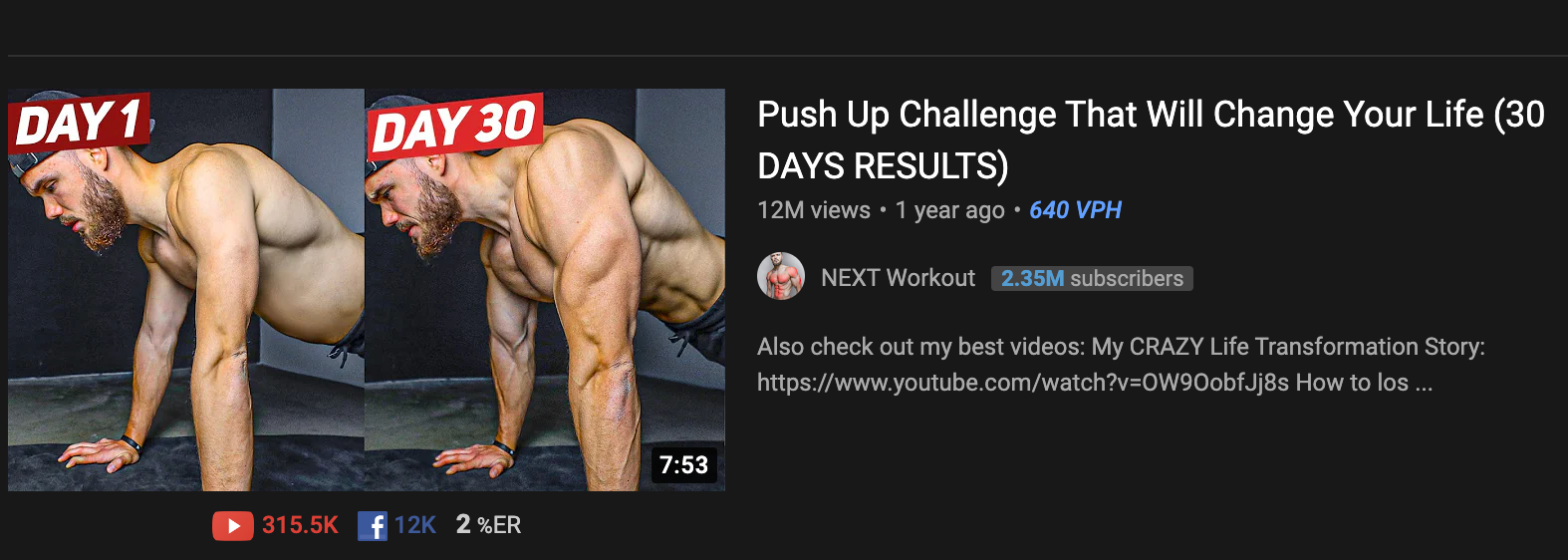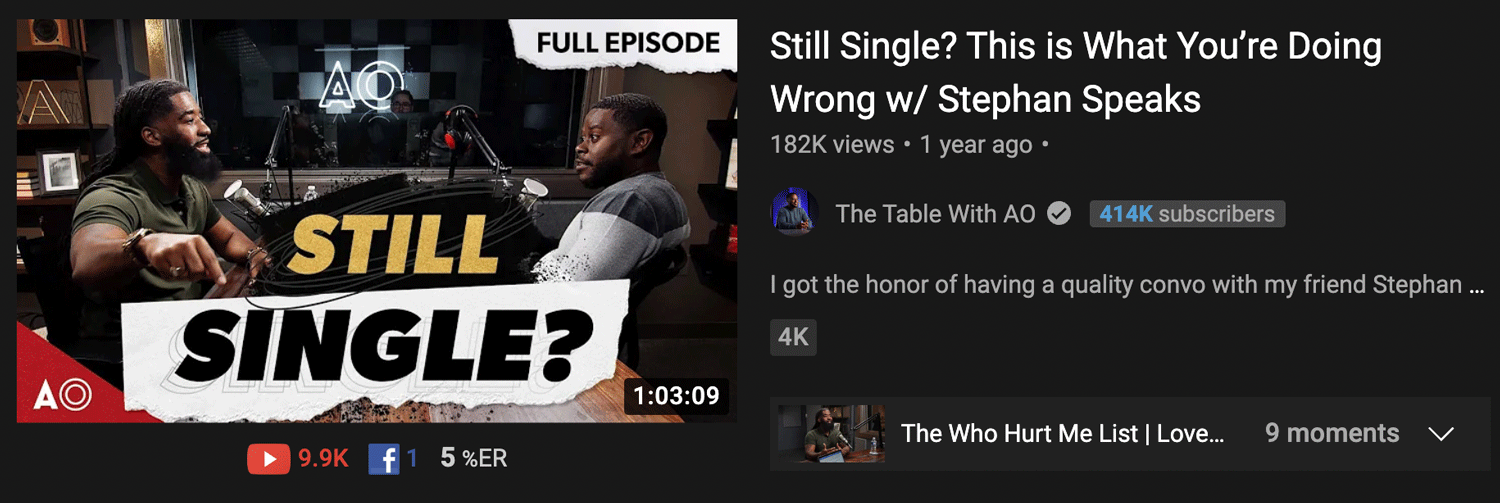Lydia Sweatt is a writer who loves balancing her article/blog time indoors with a healthy dose of nature. She bikes, hikes, and identifies edible plants along the way.
3 Secrets for Writing Click-Worthy YouTube Titles
Writing video titles for YouTube is tricky. It takes a lot of time (and thought) to develop something so compelling that a viewer thinks, Hmm, that's interesting.
The good news is you can write better titles today — or even better, right now. Jake Thomas, title-writing expert and owner of Creator Hooks, says you need three elements to be successful: curiosity, fear, and desire.
"If you can learn how to master those three emotions, you can get really good on YouTube," Jake says. And it's not just YouTube titles. We're talking about thumbnails, intros, email subject lines, Twitter threads. This is kind of the study of getting people's attention and then getting them to click."
Step 1: Learn Power Phrases
Before you write titles using curiosity, fear, and desire, there's something you should know.
Tapping into these emotions is difficult, especially with no help. It's much easier (and faster) to kick off your writing with a list of power phrases. These are words that spark an emotional response in anyone who reads them, including YouTube viewers.
Jake tweeted a list of powerful phrases a few months ago, and they'll help you speed up the brainstorming process:
- Change my life
- The truth about
- I stopped
- I regret
- Do this
- In [time frame]
- Beginner
- Without
- You're doing it wrong
- This is what I'd do
Jake says these phrases have a high rate of success on YouTube. They're effective at getting viewers interested in a video, which leads to more clicks.
Now that you've seen the phrases, here's how to use them in emotional, click-worthy titles.
1. Curiosity
Curiosity drives clicks more than any other emotion, Jake says. But how do you awaken this feeling in YouTube viewers?
The first step is to be vague. Withhold some information so viewers have to click to find out what's really happening in your video. In other words, create a mystery!
For example, there's a viral push-up challenge on The Next Workout channel. The point of the challenge is to do push-ups to a song called "Bring Sally Up." But cleverly, the creator didn't reveal this information in the title. Instead of writing something like, "Push-Up Challenge to Bring Sally Up," they wrote something along the lines of, "This Push-Up Challenge Will Change Your Life in 30 Days."

Why does this work? It blends two power phrases from Jake's list: "Change my life" plus the idea of doing so "in" a specific time frame. It makes you wonder, What kind of challenge can change my life in 30 days? Simply asking the question makes you want to watch the video.
2. Fear
As humans, we're wired to avoid pain and suffering. That's why we have an emotional response to anything that feels threatening. We sweat, engage in fight-or-flight behaviors, and do other impulsive things in the heat of the moment.
Clicking on a YouTube video can be impulsive too. If you see a video about something important in your life — but there's terrible news involved — how fast will you watch the video to learn more? Our guess: lightning fast.
Finance creators like Graham Stephan know how to evoke such fear. They'll write nerve-wracking YouTube titles like "The Largest Housing Crash Is Coming" or "Why I Stopped Buying Stocks." In fact, the stocks video drove so much fear that it got over 300,000 views.

But if you look even closer, there are more reasons someone would watch that video:
- It suggests people will lose money (a common fear).
- It uses the "I stopped" power phrase.
- It makes the viewer ask why. Why did Graham stop buying stocks?
"Is my money safe in the stock market?" "Should I stop investing like Graham did?" These are questions anyone would ask after reading Graham's video title. But watching the video is the only way to get answers.
3. Desire
Lastly, write titles that capture a basic human desire. Depending on your channel's focus, that could be money, success, companionship, tasty food, well-being, power, or travel experiences. People have many desires, so this is where understanding your YouTube niche and how your viewers think comes in handy.
Let's look at the companionship example, specifically dating and relationships. These videos are popular on YouTube because many people have a desire to be partnered. Last year, The Table with AO used this concept to write an enticing video title: "Still Single? This Is What You're Doing Wrong."

See anything familiar? Scroll back up to Jake's power phrases, and you'll notice this title uses the "you're doing it wrong" formula.
After seeing a statement like that, viewers will ask themselves, "What am I doing wrong?" That moment of self-reflection brings them one step closer to clicking on the video. After all, there's a hidden piece of information, and they want to know what it is.
Combine All Three Emotions for a Better Video Title
Now that you know which emotional cues to use (curiosity, fear, desire), try combining all three in your next title. Before you know it, your message will reach the deepest part of a viewer's mind — a place where their hopes and dreams collide. Finding that place allows you to attract thousands of clicks and get more views.
Want to learn more about his strategy? The video below has more title examples, plus extra tips to help you write them.
And if you're still struggling to write good titles, here are nine additional tips.



